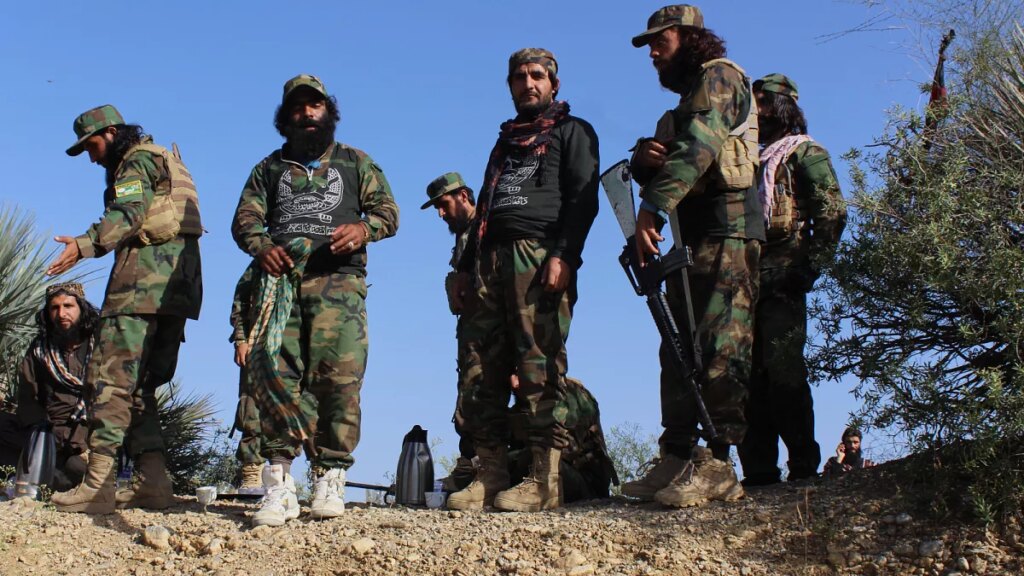Tensions along the Afghanistan-Pakistan border escalated dramatically as Afghan forces claimed responsibility for a significant offensive, resulting in the deaths of 58 Pakistani soldiers. Afghan authorities alleged that Pakistan had encroached upon its territory and airspace, triggering retaliatory actions from the Taliban government’s military. As both nations exchange accusations and conduct military operations, the situation poses risks of further regional instability.
| Article Subheadings |
|---|
| 1) Overview of Recent Clashes |
| 2) Background and Implications |
| 3) Statements from Officials |
| 4) International Reactions |
| 5) Future Prospects |
Overview of Recent Clashes
Afghan forces announced on Sunday that they had engaged in violent confrontations with Pakistani soldiers, resulting in the deaths of 58 individuals. The Taliban government’s spokesman, Zabihullah Mujahid, reported that Afghan military operations led to significant territorial advances, including the capture of 25 Pakistani army posts and wounding of an additional 30 Pakistani personnel. This clash is part of a larger cycle of tension and violence along the border that has seen both nations exchanging accusations of violation of sovereignty.
The border area has been a historical flashpoint, characterized by frequent skirmishes as both nations attempt to establish their territorial integrity. The intense engagement became a focal point of international concern as officials warned of deepening instability in the region. Afghanistan accused Pakistan of a violation of its airspace earlier in the week, stating that aerial strikes targeted its capital and the eastern part of the country.
Background and Implications
The relationship between Afghanistan and Pakistan has been fraught with tension for decades, primarily due to issues surrounding territorial claims and the presence of militant groups. Pakistan has accused Afghan authorities of sheltering members of the Tehreek-i-Taliban Pakistan, a militant group that has launched several attacks inside Pakistan. Afghan officials, however, vehemently reject these claims, asserting their country does not support actions against Pakistan.
The current wave of violence raises critical questions about regional security, particularly as Pakistan grapples with rising militancy within its borders. The southeastern provinces near Afghanistan have witnessed a surge in attacks, adversely affecting civilian lives and exacerbating the already complex geopolitical landscape. Pakistani officials warn that these incidents could inflame existing tensions with India, especially considering recent clashes and military standoffs over Kashmir.
Statements from Officials
In light of the border confrontations, Pakistani Prime Minister Shehbaz Sharif condemned the actions taken by Afghan forces. He stated, “Our army not only gave a befitting reply to Afghanistan’s provocations but also destroyed several of their posts, forcing them to retreat.” While Pakistan claims to have neutralized over 200 alleged “Taliban and affiliated terrorists,” the authenticity of these figures remains contested.
The Taliban government responded with a press conference, where Zabihullah Mujahid reaffirmed the readiness of Afghan forces to protect their sovereignty and reiterated that their military operations were successful in warding off perceived threats. These diverging narratives underscore the two nations’ unwillingness to find common ground and demonstrate a pattern of escalating military engagement.
International Reactions
The international community has closely monitored the situation, particularly given the historical significance of both countries in the broader context of South Asian stability. Numerous analysts express concern regarding the potential for renewed conflicts that could have spillover effects, destabilizing not only Afghanistan and Pakistan but also their neighboring countries.
While global reactions have varied, there is a general consensus that concerted diplomatic efforts are required to mediate peace talks between the two nations. The United States and other countries have typically facilitated dialogue in similar regional disputes and might play a crucial role in mitigating this latest crisis. The pullback of Western forces in Afghanistan has complicated diplomatic avenues, making resolution more challenging.
Future Prospects
Looking ahead, the situation remains precarious, with both nations entrenched in their respective narratives of victimhood and aggression. The potential for further military engagements is significant, and analysts fear that without substantial international intervention or dialogue, this cycle of violence may perpetuate itself.
As both countries navigate their challenges, the relationship will need a re-evaluation, with a focus on collaborative security measures aimed at curbing militancy. Recent developments could serve as catalysts for either intensified conflict or renewed diplomatic efforts, making the stakes particularly high in the coming weeks.
| No. | Key Points |
|---|---|
| 1 | Afghan forces claim responsibility for the deaths of 58 Pakistani soldiers in border clashes. |
| 2 | Tensions escalated after accusations from both sides regarding violations of territorial integrity. |
| 3 | Pakistan asserts that Afghanistan is harboring militants responsible for attacks within its borders. |
| 4 | Officials from both countries exchange statements reflecting deep-rooted mistrust. |
| 5 | International stakeholders stress the need for diplomatic engagement to resolve the crisis. |
Summary
The recent surge of violence along the Afghanistan-Pakistan border illustrates the fragile state of relations between the two nations. With both sides reaffirming their commitment to territorial defense, the risk of prolonged conflict looms larger, complicating regional dynamics and threatening the stability of neighboring countries. Addressing the underlying issues through diplomatic channels is crucial for a sustainable resolution.
Frequently Asked Questions
Question: What triggered the recent border clashes between Afghanistan and Pakistan?
The clashes were reportedly triggered by accusations from Afghanistan that Pakistan had violated its territory and airspace, leading to retaliatory military operations from Afghan forces.
Question: How have Pakistani officials responded to the violence?
Pakistani officials, including Prime Minister Shehbaz Sharif, condemned the actions of Afghan forces and claimed that their military effectively retaliated by destroying Afghan posts and neutralizing numerous militants.
Question: What implications do these clashes have for regional stability?
The violence threatens to destabilize not only Afghanistan and Pakistan but also the broader South Asian region, particularly amid existing tensions with nations like India.
